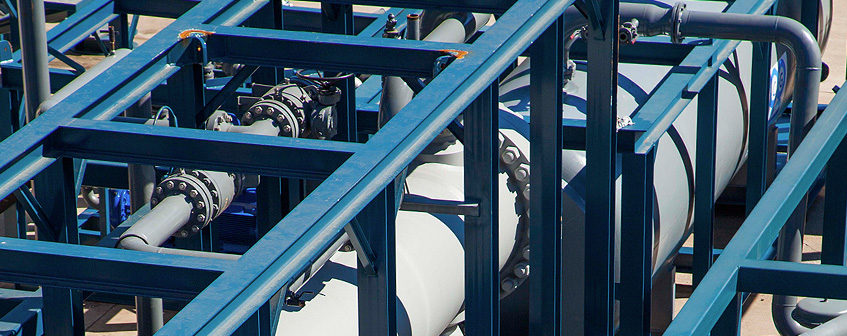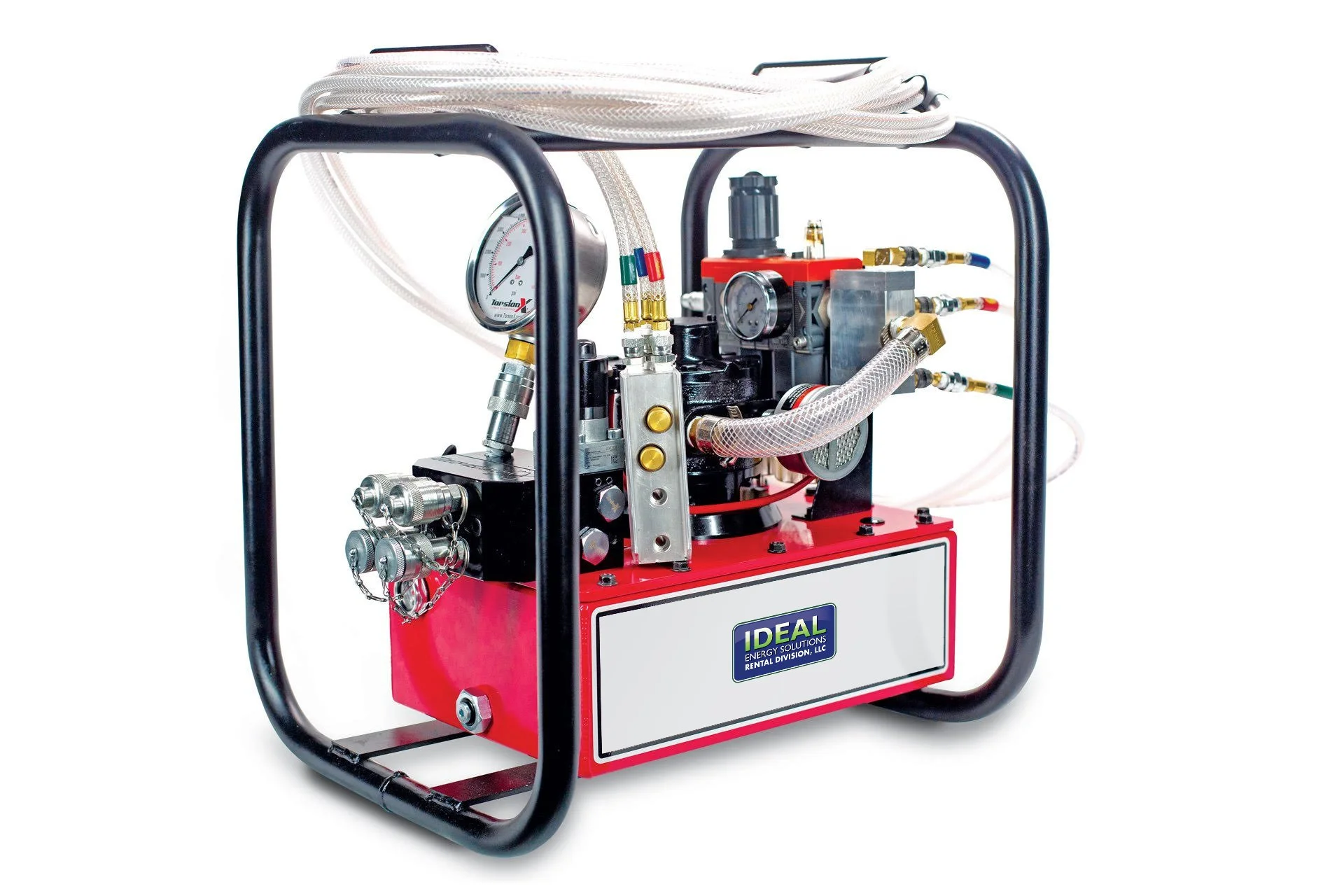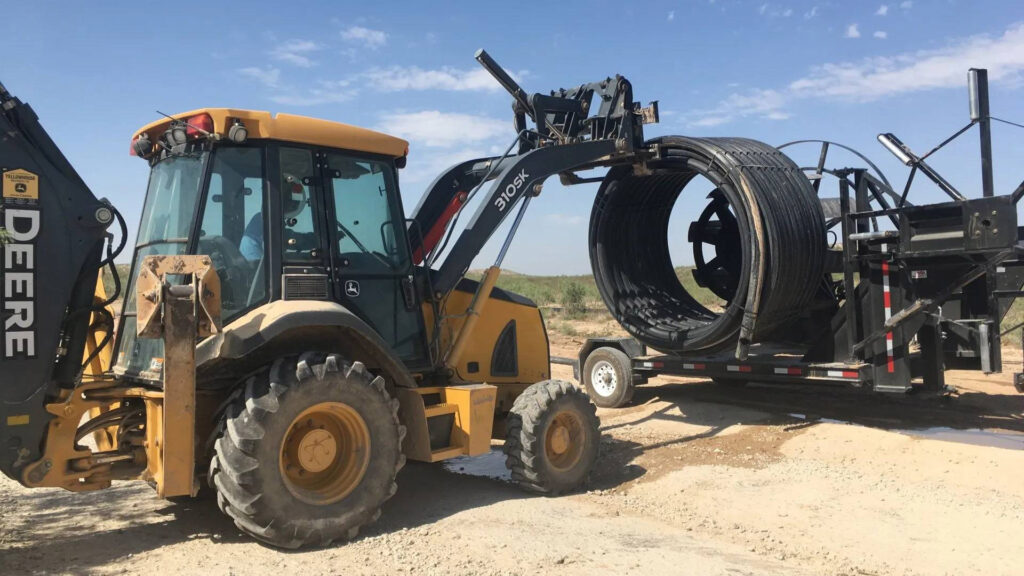Superior Rentals Contact: phone, email, and support explained
Wiki Article
A Comprehensive Guide to the Different Types of Oil Field Equipment and Pipeline Equipment Available
The oil and gas sector relies greatly on customized tools for effective extraction and transport. Various sorts of equipment, from drilling rigs to tank, play important duties in this intricate process. Each tool serves unique features that add to total operational success. Comprehending these components is crucial for any individual included in the market. As the sector evolves, so also do the technologies that sustain it. What innovations are on the perspective?
Drilling Rigs: The Backbone of Oil Exploration
Drilling rigs act as the essential equipment in the domain name of oil exploration, allowing companies to access hydrocarbon books buried deep under the Earth's surface area. These rigs are available in numerous types, consisting of land rigs, offshore rigs, and mobile systems, each designed to run in specific environments. Equipped with innovative modern technology, drilling rigs can pass through geological formations with accuracy, making certain reliable resource extraction. The architectural integrity and operational abilities of these rigs are crucial, as they should endure extreme problems and significant pressures. The selection of an exploration gear impacts the overall project expense and timeline, making it an essential consideration for oil companies seeking to maximize their exploration initiatives and optimize performance in their procedures.Pumps: Crucial for Fluid Activity
In the oil removal procedure, the duty of pumps is substantial, promoting the activity of fluids throughout different phases of production. Pumps are vital for carrying petroleum, water, and other liquids from underground reservoirs to the surface and after that with pipelines to refineries. They can be found in numerous kinds, consisting of centrifugal, positive displacement, and submersible pumps, each offering details functions based upon the liquid features and operational demands. Centrifugal pumps are frequently made use of for their performance in high-flow applications, while favorable displacement pumps stand out in taking care of thick fluids. The selection of pump impacts general efficiency, operational security, and upkeep expenses. Correct selection and maintenance of pumps are crucial for enhancing production and decreasing downtime in oil field procedures.Shutoffs: Controlling Circulation and Pressure

Shutoffs play an essential duty in handling the circulation and stress of fluids within oil fields and pipelines. Various sorts of shutoffs serve distinctive applications, each created to meet certain features basic for reliable operation - Superior Oilfield Rentals Texas. Comprehending the qualities and uses these valves is essential for enhancing system performance and safety
Sorts of Valves
Essential elements in oil field operations, valves play a critical function in controlling the circulation and stress of fluids within pipelines and devices. Numerous sorts of valves are utilized to meet the varied demands of oil and gas manufacturing. Usual types consist of gate valves, which supply a straight-line circulation and very little stress drop; globe valves, known for their throttling capabilities; and sphere shutoffs, recognized for their quick on/off control. Additionally, check shutoffs stop heartburn, while butterfly valves use a light-weight option for managing flow. Each valve type is developed with certain materials and configurations to endure the severe conditions usually found in oil fields, guaranteeing integrity and effectiveness in procedures. Recognizing these types is crucial for effective system administration.Valve Applications and Functions
While numerous sorts of valves serve distinct functions, their primary applications focus on controlling circulation and pressure within oil and gas systems. Valves such as entrance, world, and round valves manage fluid motion, guaranteeing peak efficiency and security. Gate shutoffs are commonly made use of for on/off control, offering very little circulation resistance. World shutoffs, on the other hand, offer precise circulation law, making them ideal for strangling applications. Round shutoffs are preferred for their quick procedure and tight sealing capabilities. Furthermore, stress relief shutoffs are essential for stopping system overpressure, securing tools stability. On the whole, the appropriate option and application of valves improve functional effectiveness, ensuring the dependable transportation of oil and gas via pipes and handling facilities.Compressors: Enhancing Gas Transport
Compressors play a vital function in the effective transportation of gas, guaranteeing that it relocates smoothly via pipes over cross countries. These devices enhance the stress of gas, permitting it to get rid of friction and altitude modifications within the pipeline system. Furthermore, compressors help with the harmonizing of supply and need, fitting variations in usage and manufacturing rates. Numerous kinds of compressors are employed in the sector, including centrifugal, reciprocating, and rotating screw compressors, each offering unique advantages based on the operational demands. Routine maintenance of these compressors is necessary to maximize performance and reduce downtime, inevitably adding to a reliable gas transportation network. Their vital function emphasizes the relevance of compressors in the general oil and gas facilities.Storage Tanks: Safe and Effective Fluid Management
Effective transportation of natural gas depends on various sustaining systems, one of which is the proper monitoring of tank. These containers play a vital role in safely including fluids, guaranteeing that functional performance is kept while reducing ecological threats. Built from long lasting materials, they are developed to stand up to high pressures and destructive components. Appropriately sized and tactically situated, tank assist in the smooth flow of natural gas and other liquids, preventing bottlenecks in supply chains. Regular maintenance and tracking are crucial to find leaks or structural problems, promoting safety and compliance with regulatory criteria. Ultimately, the reliable administration of tank is important for the general honesty and integrity of the oil and gas market's liquid handling systems.
Pipeline Systems: Infrastructure for Transport
Pipeline systems function as the foundation of the oil and gas market, promoting the reliable transport of hydrocarbons over huge ranges. These systems include numerous parts, consisting of pipes, valves, pumps, and compressors, all thoroughly created to ensure smooth flow. The materials made use of in pipeline construction, commonly steel or high-density polyethylene, are selected for toughness and resistance to rust. Pipeline networks can extend across land and water, attaching manufacturing sites to refineries and warehouse. In addition, progressed technology makes it possible for real-time surveillance of circulation rates and stress levels, boosting operational performance. The strategic positioning of these pipes lessens environmental impact while taking full advantage of source ease of access, therefore playing a vital role in meeting energy demands internationally.Security Equipment: Ensuring Employee and Environmental Management
The procedure of pipeline systems, while necessary for power transportation, additionally provides considerable safety challenges for workers and the atmosphere. Safety equipment plays a significant role in alleviating these dangers. Personal protective devices (PPE) such as navigate to this site helmets, gloves, and non-slip footwear safeguards employees from physical threats. In addition, gas detection systems keep track of for leakages, making sure that damaging materials do not position from this source a risk to employees or the bordering environment. Emergency closure systems are vital for promptly halting procedures throughout a situation, protecting against prospective catastrophes. Spill containment products, consisting of absorbents and obstacles, are essential for decreasing ecological influence. In general, buying all-encompassing safety equipment is vital for maintaining operational stability and safeguarding both employees and the atmosphere in the oil and gas sector.
Often Asked Questions
How Do I Select the Right Oil Field Equipment for My Project?
Selecting the appropriate oil field devices includes evaluating job requirements, spending plan restrictions, and functional requirements. Think about elements such as devices reliability, compatibility with existing systems, and the distributor's credibility to guarantee peak efficiency and safety and security.What Are the Maintenance Demands for Oil Field Equipment?
Upkeep requirements for oil field tools include regular inspections, lubrication, and timely repairs. Operators must additionally abide by producer guidelines, display performance metrics, and assurance conformity with safety guidelines to improve durability and efficiency.
Just How Can I Guarantee Compliance With Environmental Rules?
To guarantee conformity with ecological policies, business have to carry out routine audits, execute ideal practices, invest in training, maintain correct documentation, and stay updated on regulation (Superior Oilfield Rentals Texas). Cooperation with environmental companies can additionally boost adherence to lawsWhat Is the Ordinary Lifespan of Pipeline Equipment?
The average lifespan of pipeline devices normally ranges from 20 to 50 years, depending upon elements such as material high quality, environmental problems, and maintenance methods. Routine examinations can substantially affect long life and operational performance.Exactly how Do I Safely Transport Oil Field Equipment to Remote Locations?
Transferring oil field equipment to remote places requires cautious planning, including course assessment, protecting permits, making use of appropriate cars, and ensuring security methods paving equipment for sale are followed. Appropriate training and interaction amongst staffs are vital for effective transport.Report this wiki page